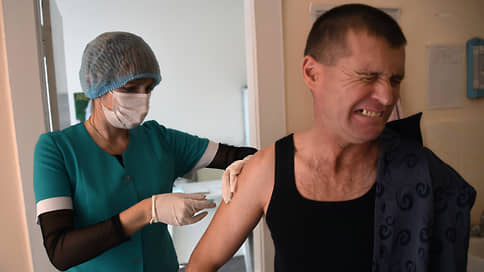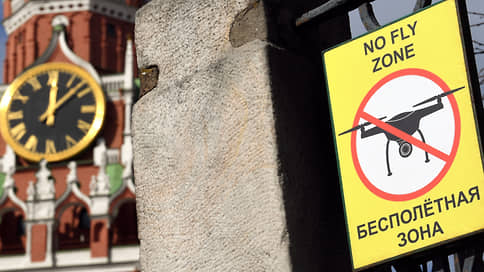Refusal of vaccinations led to the spread of three dangerous diseases in Russia

In Russia, the incidence of measles and rubella is growing – this is stated in the annual report of Rospotrebnadzor. The spread of whooping cough is also alarming in the sanitary department. The doctors interviewed “Kommersant” explain this trend in a decrease in the level of collective immunity.
“Kommersant” studied the report published by Rospotrebnadzor “On the state of sanitary and epidemiological well-being of the population in 2024”. The department reported that in Russia the incidence of 48 forms of infectious and 15 forms of parasitic diseases decreased. Data on their distribution in 2024 was compared with the « Middle Age indicators » – statistics from 2012 to 2023 (with the exception of coronavirus 2020 and 2021). “The most pronounced” the incidence of Astrakhan spotted fever (three times), acute hepatitis B (2.8 times), bacterial dysentery (1.8 times), gonococcal infection (2.5 times), enterovirus meningitis (2.5 times) and first detected tuberculosis (1.9 times). At the same time, Rospotrebnadzor noted a significant excess of the “average -year incidence rate” in relation to hemophilic infection (13.4 times), measles (11 times), rubella (six times), whooping cough (4.5 times), epidemic mumps (3.5 times), the fever of the Western Nile (three times), the flu (three times) and the Emergencies) and the Emergencies and the Emergencies) and the Emergencies and the Emergencies) and the Emergencry) and the Emergencies and the Emergencies pneumonia (double).
The crime situation is especially disturbed by doctors. According to Rospotrebnadzor, in 2024 22,455 cases of infection were registered in the country. The incidence rate (15.35 cases per 100 thousand people) is 1.72 times higher than the figures of 2023 (8.92 per 100 thousand). Most cases of measles were recorded in Moscow – 5035 patients, in second place – Dagestan (2199), in the third – the Moscow Region (1798). More than half of the sick (67%) are minors. Most often, children under the age of a year were sick, and the incidence rate among them increased 2.2 times compared to 2023.
Rospotrebnadzor notes that 89.5% of the sick were not vaccinated (or they did not have reliable information about vaccination). At least four deaths among unvaccinated children were recorded.
The infectious disease specialist, chief physician of the Invitro clinical and diagnostic laboratory, Andrei Pozdnyakov, indicates that the noticeable spread of measles in Russia began in 2022 in Novosibirsk. Then the doctors became clear that “until the measles covers the whole country, it will not calm down,” he says. Mr. Pozdnyakov emphasizes that measles are the most highly extensive virus in the history of mankind. Even the flu and the new Covid strains, according to him, are not so contagious: « According to the old rules, when a single case of measles detection in the hospital, the entire building was closed at once, regardless of the number of floors. »
The increase in the incidence of measles indicates the insufficient coverage of vaccination, the infectious disease specialist of Medicine JSC (Academician Roitberg Clinic) agrees. This leads to a decrease in the level of collective immunity: in such a situation, even one person who is not protected from the virus can cause a local outbreak, infecting up to 17-18 people. The doctor emphasizes that measles are especially dangerous for adults: after 30 years, the risk of serious complications increases significantly. At the same time, at the initial stages, the disease often occurs asymptomatic, which complicates its detection and contributes to further distribution.
“There is no specific treatment of measles, so prevention is a key measure of the fight against it,” says Vladimir Chulanov, the chief freelance specialist of the Ministry of Health of the Russian Federation for infectious diseases. “It is necessary to maintain high coverage of the child population with vaccination – at least 95%. In this case, even those persons who cannot be vaccinated against measles for medical reasons or have immunity to infection will be ensured. In this regard, it is important to comply with the requirements of Russian legislation on vaccination and revaccination of citizens from this disease. ”
The issue of distribution is also raised in the report of Rospotrebnadzor RUBLICH.
Since 2017, Russia has the status of a territory free of this disease. In isolated cases, the infection was brought from other countries. But in 2024, 258 cases of rubella in 25 entities were registered in Russia at once. Most of all – in Dagestan (92 patients), the Moscow region (70 patients), the Astrakhan region (20 patients) and Moscow (20 patients). The authors of the report suggest that the deterioration of the epidemiological situation is caused by « defects in the work of medical organizations to conduct planned immunization of the population against rubella. » Among the sick, 90.7% were not vaccinated or did not have information about vaccination.
In 2024, 32,535 cases were registered in Russia whooping cough. The disease was recorded in all subjects, except for the Chukchi Autonomous Okrug. The executive of the cough (22.24 per 100 thousand people) is 1.6 times lower than in 2023 (35.98 per 100 thousand people). However, it still exceeds by 4.5 times the average -year -old values (4.92 per 100 thousand people).
In most cases, light and medium -sized forms of whooping cough are recorded. Severe cases have only 0.7% of patients, in another 1.9% the disease was atypical. About 80% of patients belong to the category of “children under 14 years of age” (mainly babies), another 8.2% are adolescents, and 11.2% are adults. 11 fatal cases of pertussis among unvaccinated children under the age of a year (five in Dagestan, one in St. Petersburg, Bashkortostan, Mari El, Khakassia, Vologda and Novosibirsk regions) were recorded.
A decrease in the incidence of whooping cough is a positive trend, but it requires a careful interpretation, the infectious disease specialist Vladimir Neronov believes, because the indicator still significantly exceeds the average-year-old values. The reasons for the surge in previous years, according to him, could be spaces with vaccination: the refusal of citizens from vaccinations of children, temporary honey detergents, as well as replacing vaccines with lightweight formulas that do not provide complete protection. “It is important to understand that all these diseases are prevented using timely vaccination,” he emphasizes. “Prevention, especially in childhood, remains the main way to contain epidemics. Given the existing risks, adults are also recommended revaccination, especially if more than ten years have passed since the last vaccination. ”








